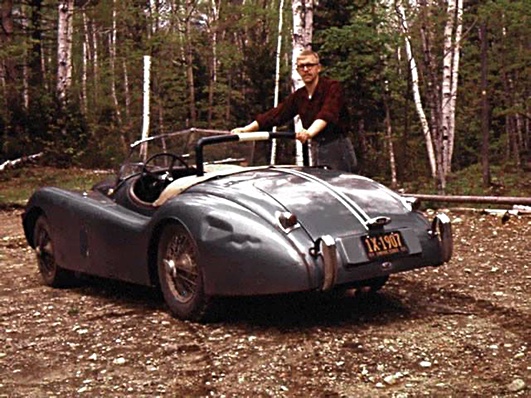A Yankee Notebook
NUMBER 2005
December 23, 2019
Looking Back in Joy
EAST MONTPELIER, VT – People send and give me books. All are presumed to be “right up my alley.” Some, in fact, are.
Last week Gary Moore of Bradford, a man of all seasons and a fellow columnist, gave me a copy of his latest book, Four Seasons in Vermont. Mired as I am in the notion that most books, like most advice, are worth what you pay for them, I opened it with some skepticism. I’d skimmed it before – even written a blurb for it – but this time I intended to read it. And I’m very glad I did.
Gary, like most of us who’re still active, but suspect we’re a bit past our prime, writes a lot about his past. Except for his rural roots and the confusing horror of the Tet offensive, we’ve had a lot of similar experiences. He writes simply – no flowers – but in his reminiscences I can feel the slow warming of a closed-up cabin on a winter day at the urging of a wood stove, feel the familiar caress of a rifle that’s been carried for decades in the deer woods, and recall the jibes and stories of old-timers I’ve known and loved. In short, it’s evocative; and it’s had me trolling through my own memories for the sweetest moments.
One of the most touching things I’ve read are the comments of Orulo, an aged Inuit woman and wife of a well-known angakok, Aua, who lived in the Canadian Arctic a century ago. Between 1921 and 1924, the Danish-Inuit ethnographer Knud Rasmussen sledged with a pair of companions all the way across the North American Arctic, from Hudson Bay to Point Hope, Alaska. Conversant in all the native dialects of the north, he interviewed people he met along the way, and recorded the experience in a wonderful book, Across Arctic America. He visited Aua to get a clearer picture of native spirituality and transcribe some of the charms and chants Aua used to cure illnesses, ward off bad spirits, and predict coming events. At one point he listened as Orulo told the story of her life on the northeast corner of the continent, right at the Arctic Circle. As she finished, she was weeping:
Today I have been as it were a child again. In telling you of my life, I seemed to live it all over again. And I saw and felt it all just as when it was really happening. There are so many things we never think of until one day the memory awakens. And now you have heard the story of an old woman’s life from its beginning right up to this very day. And I could not help weeping for joy to think I had been so happy...
There’s a reason old folks talk so much about the past, and why kids are sometimes chary about asking their grandparents what their lives were like: It can go on at lengths we’ve not been prepared to travel; and sometimes old, plowed ground gets gone over again. But for many old-timers the present isn’t as pleasant as they’d hoped it would be. Arthritis, memory lapses, leaky valves, fear of poverty, and failing strength can be depressing facts of life. As for the future, what little of it there is may seem daunting. So they – we – dwell often and warmly on the days when we were beautiful, strong, and still hopeful.
Some years ago, four of us who’d been pals in junior high school got together, as we often had as kids, to fish. But this time, instead of the brown trout in Elmwood Park in our old neighborhood, it was cutthroats in Yellowstone. On a perfect day we hiked a few miles through a “Bear Management Area,” to Pelican Creek – a lazily meandering meadow stream loaded with trout and patrolled by eagles soaring overhead. The trout, for fear of the eagles, were nestled up under the banks, venturing out quickly now and then to grab a struggling grasshopper. We could see their bellies under the overhanging grass. I had my treasured little light bamboo fly rod, and remember that day all these years later as a bright gem in my life.
On Friday evenings in Syracuse just sixty years ago, I went straight from my construction job to pick up groceries, shower, and gas up my car – an elderly, magnificent Jaguar roadster. At seven o’clock, when she got off work, I picked up the young woman who would only weeks later become my wife, who had her weekend duds with her. We got off the Thruway at Utica, and spent the next two hours in an automotive ecstasy, roaring through the woods, across bridges, and up river valleys at the very limit of my headlights. Two young mortals daring the Fates to collect their due. Thankfully, they could wait – and did.
Gary, in his book, often mentions hunting camp as a gathering place of old friends and a cultural ritual. He’s right. One of my greatest joys for fifty years was the annual late fall run over the Green Mountains and Lake Champlain, across the infant Ausable River, and the mile up the mountain to camp. The last hill steepened as I climbed, and it seemed a long time till I saw the gleaming windows. Opening the door into the warm room was like opening a present: It was always a lovely surprise to see who was there. I knew even then that, someday when I got old, I would remember and cherish those insulting greetings more than I would fine gold. And like old Orulo, I would weep for joy that I had been so happy.


